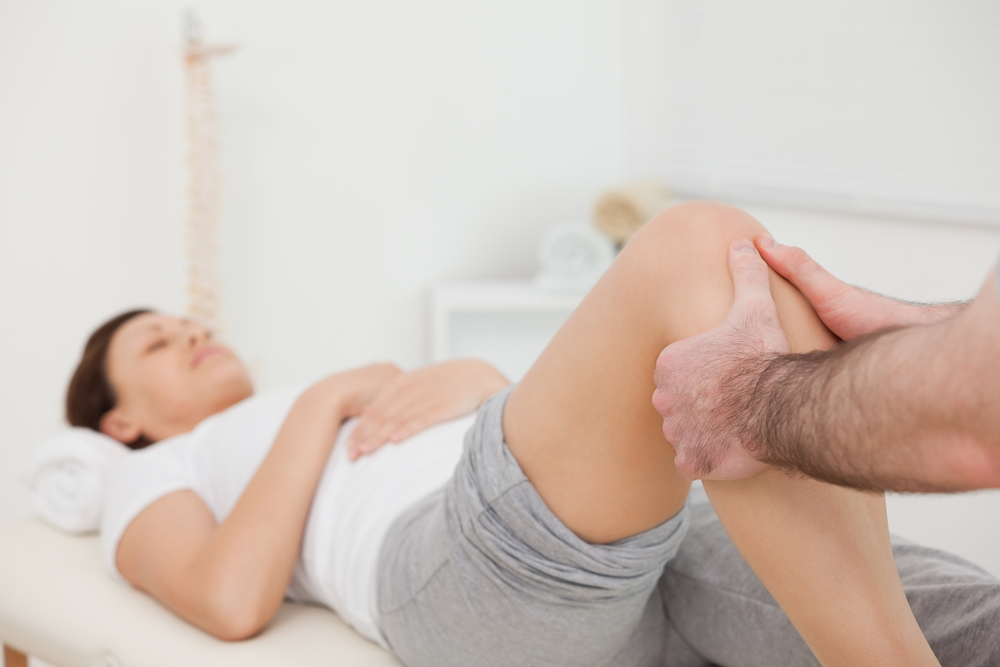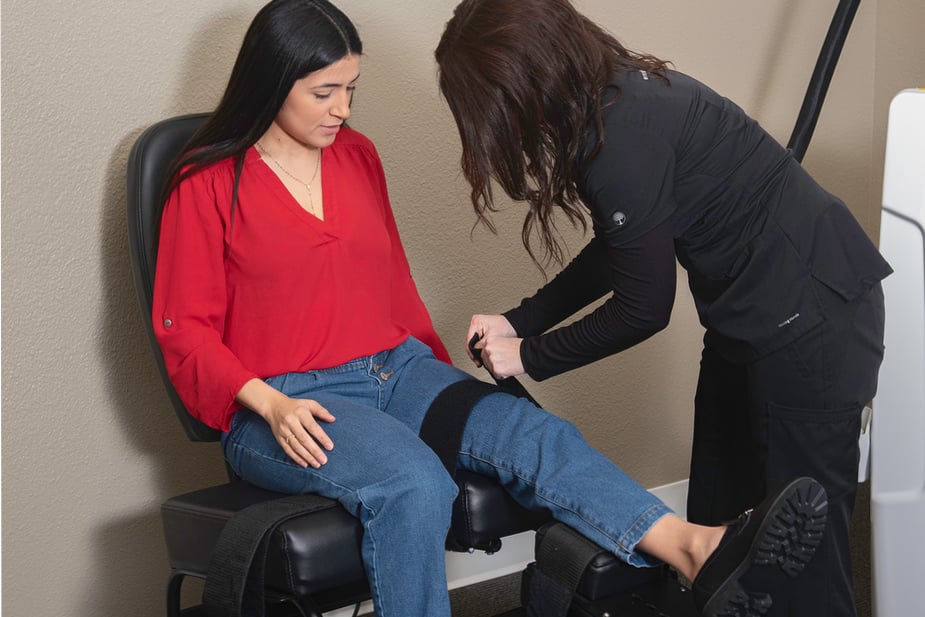Is Your Knee Pain Caused by Arthritis?
3 min read

Having a "bad knee" is really common. That's because the knee is one of the body's most used, and abused, joints in our bodies. Over time extensive use can cause the cartilage to deteriorate in the knee joint which leads to inflammation that causes knee pain. It will progressively get harder to stand up, climb stairs, and do other everyday activities. While arthritis of the knee isn't curable, it can be managed with chiropractic care so you can keep an active lifestyle.
What Causes Arthritis of the Knee?
We already mentioned that arthritis is the wearing out of the knee joint's cartilage. But what causes that? The most common factor for those with arthritis knee pain is age. Arthritis is more common among people ages 55 and up simply because of using the knee over time.
Other factors that might lead to knee arthritis developing include:
- Being overweight. This puts strain on your knees; in fact, for every pound of weight you gain, 3 to 4 pounds of extra weight is felt by your knees. Losing weight is the best thing you can do for your knees.
- Heredity. Some people are just more prone to knee problems. This can be the result of inherited abnormalities in the joint or genetic mutations. If your parents developed knee arthritis early, you have a higher risk of doing so.
- Gender. Women are more likely to develop arthritis of the knee than men.
- Repetitive strain injury. Generally these kinds of injuries occur in people who lift heavy weights routinely, whether during work or as part of a hobby or other activity. Excessive kneeling can also cause osteoarthritis, although it is more likely to result in infrapatellar bursitis, sometimes called "pastor's knee." Make sure to stretch when after heavy lifting, use correct posture and technique, and consider a knee brace if you have had issues with the knee in the past or have other risk factors.
- Athletic or other injury. An old knee injury can result in osteoarthritis developing later in life. This is more common in athletes, but can be a result of other injuries or accidents.
- Type 2 diabetes. Type 2 diabetes is also associated with knee problems, although this may be a result of obesity rather than the disease itself. There are growing indications, however, that the metabolic disturbances associated with diabetes can themselves increase risk.
Symptoms of Arthritis in the Knee
Arthritis in your knee joints can have a few different symptoms, with the primary one being pain in the knee during or after movement. Talk to your chiropractor if you are experiencing pain and/or any of the following:
- Stiffness in your knee when you get up on the morning or after sitting for an extended period of time.
- Your knee feels tender if you apply pressure.
- You have issues moving your knee through its full range of motion. For example, it may become difficult to use the stairs.
- You feel a grating sensation or hear popping when you move your knee. Occasional joint popping is normal, but if it becomes consistent it might be a concern. A creaking or crackling sound is also of concern.
- Swelling around the joint.
- A feeling of warmth or "heat" in and around the joint.
Your doctor or chiropractor may order tests that include X-rays or MRI scans of your knee to see if there is another cause of the pain and other symptoms. You might also ask your doctor for a blood test to rule out rheumatoid arthritis or an immune condition. An X-ray may detect the presence of bone spurs, which are a common result of osteoarthritis.
How a Chiropractor Treats Osteoarthritis of the Knee
A lot of people think they're left with medications, injections or knee replacement surgery at some point to relieve the pain. But what many people don't realize is that a chiropractor can treat knee arthritis using several different techniques:
- Knee traction - stretching out and holding the knee joint to relieve pain and pressure.
- Cold laser therapy - a non-heating laser is pointed at the knee for a short period of time to reduce inflammation which can reduce knee joint pain.
- Exercises and stretches to help return motion to your knee
If you've got knee pain, but don't want to be on medication or resort to injections just yet, talk with the team at Village Chiropractic to see what they may be able to do to help you feel better and get moving again.
More from Our Blog on This Topic
7 min read
5 min read






